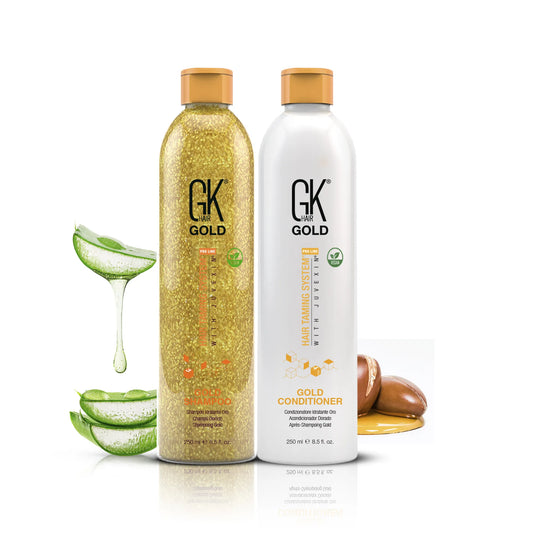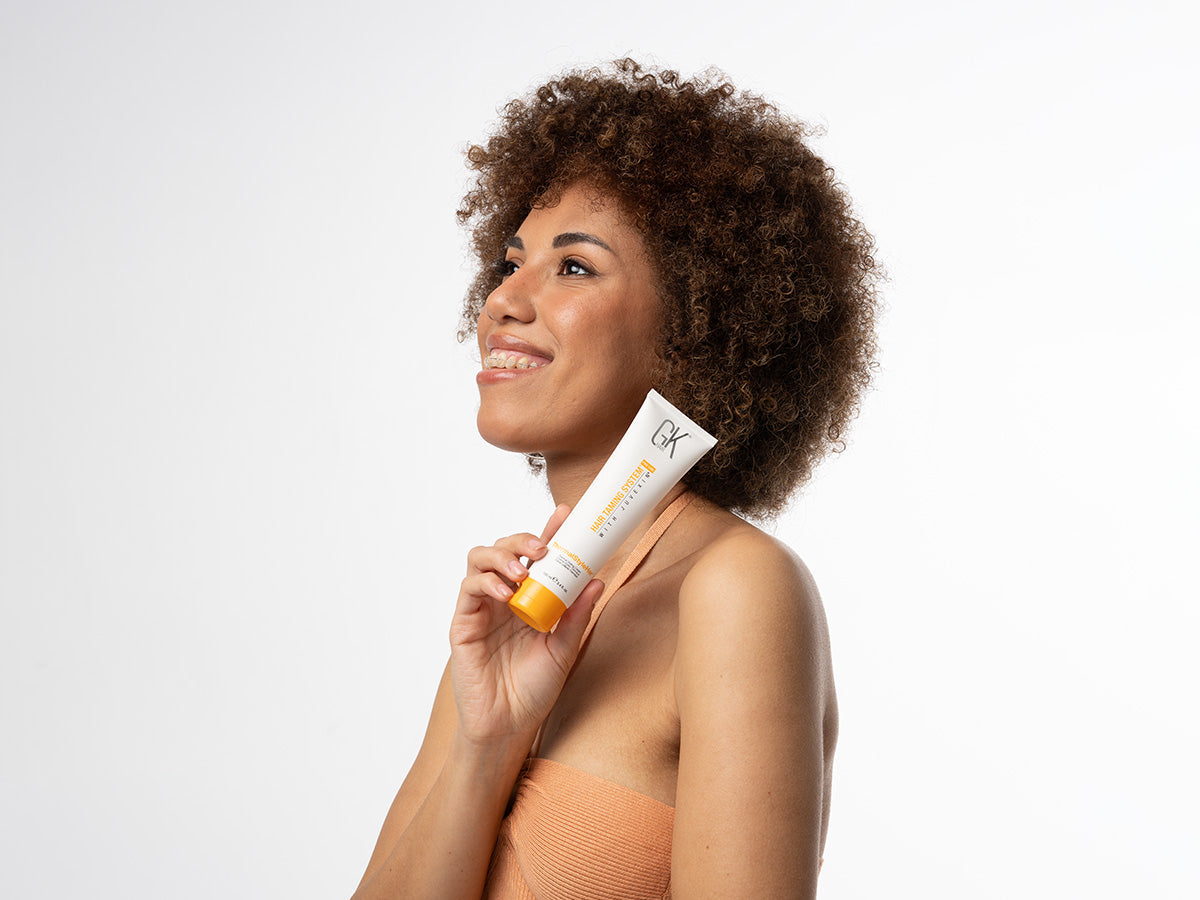We all want to wake up with fabulous hair that looks and feels healthy and vibrant. However, many of us don't realize that our sleeping habits can have a significant impact on the health and appearance of our hair. Tossing and turning in bed, sleeping with wet hair, or using the wrong pillowcase can cause hair breakage, frizz, and damage, leading to a bad hair day before we even get out of bed.
The good news is that there are simple and effective ways to protect your locks while you sleep, ensuring you wake up to great hair every day. In this blog post, we'll share some expert tips on how to keep your hair healthy and beautiful overnight. From choosing the right pillowcase to using protective hairstyles and products, we've got you covered. So, let's dive in and discover how to get the best beauty sleep ever!
Wash your hair by evening.
Keeping your hair clean is essential for maintaining its health and beauty. But did you know that washing your hair can also make a difference in how it looks and feels? Washing your hair by evening is a simple but important step in your hair care routine that can significantly impact the health and appearance of your locks.
When you wash your hair in the evening, you remove any buildup of dirt, oil, and product accumulated throughout the day. This not only keeps your hair looking and smelling fresh. By washing your hair in the evening, you also give your hair time to breathe and rejuvenate overnight.
Another reason why washing your hair by evening is important is that it helps moisturize your hair. When you wash your hair in the morning and then expose it to the sun and other environmental factors throughout the day, it can become dry and brittle. By washing your hair in the evening, you allow your hair to absorb moisture and natural oils overnight, keeping it hydrated and healthy.
Use a serum to detangle
After washing your hair, you may find it difficult to detangle, especially if you have long or curly hair. Trying to comb or brush your hair when it's wet can cause breakage and damage, which is why it's important to use a detangling product to help ease knots and tangles.
One of the best products for detangling hair is a serum. Hair serum is a lightweight oil that helps smooth and protect the hair, making it easier to manage. To use a serum, apply a small amount to your damp hair, focusing on the mid-lengths and ends. Then, gently work through any knots or tangles with a wide-toothed comb for detangling brush.
Using a serum to detangle your hair has several benefits. It helps reduce hair breakage and damage, making it easier to comb or brush through knots and tangles without pulling or tugging on the hair. This can help to prevent split ends and other forms of damage. A serum can also help improve your hair's overall appearance, as it adds shine and smoothness, making your locks look healthier and more vibrant.
When choosing a serum for your hair, look for one formulated specifically for your hair type, or try GK Hair Argan Oil Serum. It works for almost all hair types. It provides extra hydration and will definitely let your hair down.
Brush it up
After applying a serum to your hair, the next step is to brush it through. Brushing your hair after applying a serum helps to distribute the product evenly throughout your hair and ensure that it's fully absorbed. It also helps to stimulate blood flow to your scalp, which can promote healthy hair growth.
When brushing your hair after applying a serum, it's important to use the right type of brush. A wide-toothed comb or detangling brush is ideal for working through any knots or tangles. Once your hair is detangled, switch to a paddle brush or a boar bristle brush to smooth and shape your hair.
Brushing your hair after applying a serum can also help to add volume and body to your locks. By brushing your hair from the roots to the ends, you can create lift and height, making your hair look fuller and more voluminous.
It's important to note that brushing your hair too vigorously or with the wrong type of brush can cause damage and breakage. Make sure to use a gentle touch and avoid brushing your hair when it's wet, as this is when it's most vulnerable to damage.
Dry your hair before sleeping
After brushing your hair, the next step is to ensure that your hair is completely dry before going to bed. Sleeping with wet hair can cause damage and breakage, as wet hair is more prone to tangling and stretching.
To avoid these issues, dry your hair thoroughly before going to bed. If you have time, it's best to let your hair air-dry naturally if you have time, as this is the gentlest method. However, if you're short on time or prefer to use a hair dryer, use the lowest heat setting and hold the dryer at least 6 inches away from your hair. This will help minimize heat damage and ensure your hair dries evenly.
Another way to dry your hair before sleeping is to use a microfiber towel or a cotton t-shirt. These materials are gentler on your hair than regular towels, which can rough up the hair cuticle and cause damage. To use a microfiber towel or t-shirt, wrap your hair up and gently squeeze out any excess moisture.
Do not tie your hair tightly
One common mistake people make when going to bed is tying their hair tightly in a ponytail or bun. While this may seem like an excellent way to keep your hair out of your face while sleeping, it can cause damage and breakage.
Tying your hair up tightly creates tension in the hair follicles, which can lead to hair loss over time. It can also cause knots and tangles as the hair is forced into an unnatural position. In addition, tying your hair up tightly can create a crease in your hair, which can be challenging to remove in the morning.
To avoid these issues, it's best to leave your hair down or loosely tied when going to bed. If you prefer to tie your hair up, use a soft silk scrunchie or a hair tie that is designed to minimize damage. Try braiding your hair loosely to keep it out of your face without creating tension in the hair follicles.
Another way to protect your hair while sleeping is to use a silk or satin pillowcase. These materials are gentle on your hair and can help to prevent frizz and breakage. They also help to maintain the natural oils in your hair, which can help to keep it moisturized and healthy.
Protecting your hair while sleeping is integral to any hair care routine. By following these tips, you can help to prevent damage, breakage, and tangles and wake up to great hair that looks and feels amazing.













Leave a comment